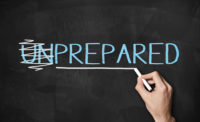Ten ways to protect your eyesight
Even diet plays a part

 We tend to take our eyes and our vision for granted. Sure, when we find out we need glasses or have to change to a stronger prescription, we think about our eyes – but other than that, how often do we pay attention to the wonderful gift of sight that most of us have?
We tend to take our eyes and our vision for granted. Sure, when we find out we need glasses or have to change to a stronger prescription, we think about our eyes – but other than that, how often do we pay attention to the wonderful gift of sight that most of us have?
Although not all types of vision loss are preventable, many either are preventable or they could be caught early enough to slow down the deterioration. But it’s never too late to start taking care of your eyes. Here are the top 10 ways you can do so:
1-Know the difference between the different professionals who help you take care of your eyes. An ophthalmologist is a medical doctor who has specialized in eyes and and eye diseases, but can also test your vision for the appropriate glasses or contacts. An optometrist is qualified to test your eyes and treat them for some eye problems, and to determine what types of correction you may need. An optician is someone who makes and tailors the glasses to fit your needs.
2- Get your eyes checked regularly even if they’re “ok” now. That old saying, an ounce of prevention…..is really true. Be sure to get your eyes checked regularly, depending on what your eye care professional suggests. You will first need a baseline test to see where you’re at. After that, you’ll be told what your plan of action should be. If you sense any changes in your eyes or vision, get your eyes checked as something may be going on.
3- Know your family history. Your history is important because some sight problems run in families. Knowing what eye problems your family has will alert your doctor as to what to watch for and may change your prevention plan.
4- Take care of your glasses and contacts. Make sure your glasses are right for you. If they don’t feel right or seem to not be strong enough any more, get your eyes checked again. Contact lens care is very important. Follow instructions closely and avoid contaminating the lenses. It’s easy to introduce problems such as corneal tears and infections if you don’t treat the lenses carefully.
5- Follow your treatments. Vision is a funny thing. You may not feel like you need the eye drops or medications that you’ve been prescribed, but even if you don’t feel it, the damage in your eye could be getting worse.
6- Protect your eyes. So many people end up with eye injuries because they didn’t use eye protection when participating in certain activities, such as certain sports (hockey, for example) or home renovations.
7- Wear sunglasses. This goes with “protect your eyes,” because your eyes are very sensitive to the sun, even if you don’t feel it. Spend the money on good sunglasses as cheap ones that don’t offer enough protection will give you a false sense of security.
8- Be aware of eye fatigue. Don’t focus on a computer screen, for example, for too long a period. Look away from your screen regularly (some experts recommend that you look away from your screen every 20 minutes for a minimum of 20 seconds). If you’re having problems with your computer screen, it may need adjusting or you may need glasses or different glasses.
9- Don’t start smoking and quit if you do. I know, easier said than done, but doctors have found a direct link between smoking and eye diseases like age-related macular degeneration (AMD) and cataracts.
10- Eat a healthy, balanced diet. This is good advice for just about any body system and that includes your eyes. Vegetables play a large role in eye health, in particular.
Click here to read more.
Looking for a reprint of this article?
From high-res PDFs to custom plaques, order your copy today!







